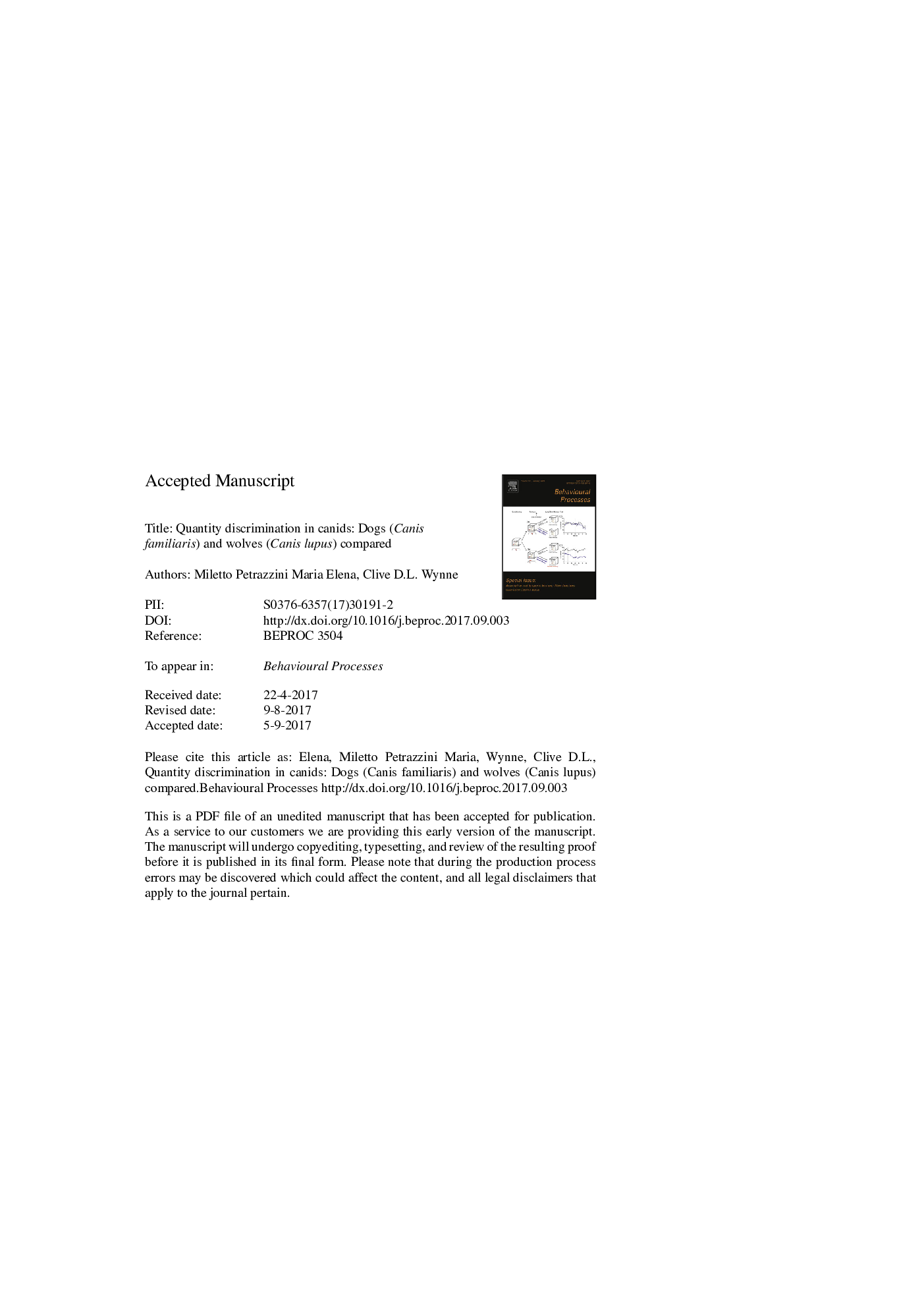| Article ID | Journal | Published Year | Pages | File Type |
|---|---|---|---|---|
| 5539723 | Behavioural Processes | 2017 | 17 Pages |
Abstract
Accumulating evidence indicates that animals are able to discriminate between quantities. Recent studies have shown that dogs' and coyotes' ability to discriminate between quantities of food items decreases with increasing numerical ratio. Conversely, wolves' performance is not affected by numerical ratio. Cross-species comparisons are difficult because of differences in the methodologies employed, and hence it is still unclear whether domestication altered quantitative abilities in canids. Here we used the same procedure to compare pet dogs and wolves in a spontaneous food choice task. Subjects were presented with two quantities of food items and allowed to choose only one option. Four numerical contrasts of increasing difficulty (range 1-4) were used to assess the influence of numerical ratio on the performance of the two species. Dogs' accuracy was affected by numerical ratio, while no ratio effect was observed in wolves. These results align with previous findings and reinforce the idea of different quantitative competences in dogs and wolves. Although we cannot exclude that other variables might have played a role in shaping quantitative abilities in these two species, our results might suggest that the interspecific differences here reported may have arisen as a result of domestication.
Keywords
Related Topics
Life Sciences
Agricultural and Biological Sciences
Animal Science and Zoology
Authors
Maria Elena Miletto Petrazzini, Clive D.L. Wynne,
